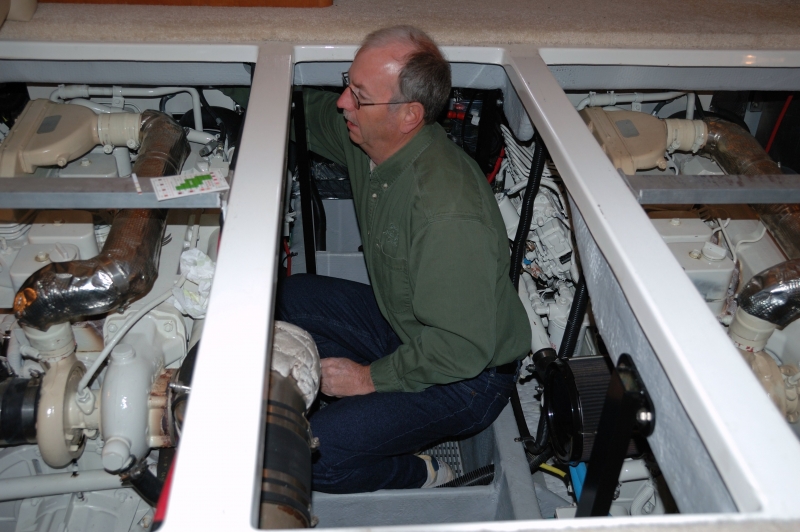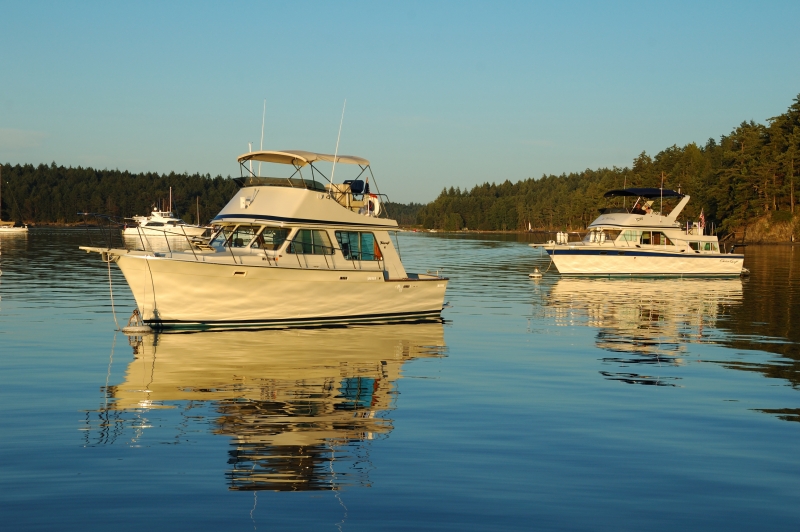Spring Is Coming! Get the Boat Ready to Cruise
23rd February 2022
It’s that time of the year when boats are shaken loose from the winter doldrums. Snowbirds have returned home. And plans for a summer of cruising are being formulated on kitchen tables up and down the coast. Spring is coming! So get your boat ready to cruise.

The waterways will be coming alive with boats soon.
Safety First
Ensure all required safety equipment is on board and check the expiration dates on flares. Inspect individually all PFDs and ensure properly sized ones for each crew member. Affix strobes and whistles to each vest as an added element of safety.
It doesn’t matter if you’re only going a few miles offshore: your boat should be equipped with an EPIPR. Life rafts are also necessary and make sure the inspection is current. In addition, put together a ditch bag that includes as a minimum a first aid kit, handheld GPS (with extra batteries), VHF, water, some basic food, and tools. Ensure it is easily accessible and not buried at the bottom of the lazarette.

Time to perform some pre-season maintenance.
Battery Maintenance
Maintaining your batteries should be part of your routine schedule, but paying extra attention before casting-off is prudent. Remove the battery terminals and clean them. Clean the batteries and wipe down any condensation that may have accumulated on top. Excess moisture can create a path to ground that will start to discharge your batteries. Check the electrolyte levels in flood type batteries and top off with distilled water if necessary.
Stay Illuminated
Check the running lights and make sure to have the necessary spare bulbs, including the anchor light. Take the time to grease the connections. Ensure you have a powerful searchlight, the more candlepower the better. It’s also a good idea to have enough flashlights for everyone on board.
Make Sure Your Fuel is Clean
One of the areas of concern for any boat is clean fuel. Depending upon the sea state, it’s possible that debris can be stirred up from the bottom of the tanks. If the tanks haven’t been cleaned in ten years, suggest having them professionally done. Also, if the boat has been sitting unused with half-empty tanks, chances are moisture has formed. The cooling and warming of tanks will condense this moisture into water. Therefore, make sure to change your fuel filters (primary and secondary) before departing, even if you’ve been religious about adding the proper additive. Carry spare filters as well.
Engine Maintenance
Have the engine(s) thoroughly serviced before departure. In addition, ensure belts are fresh and not worn, hoses show no sign of chafe or failure, and the impeller is in good shape. If the impeller blades wear out or break off, an obstruction within the coolant system could result. Carry an assortment of hoses and spares. Some engine manufacturers offer a pre-packaged spare parts kit.
Steering
Take the time to completely inspect the hydraulic steering system. Look for any leaks and check for any slop in the steering. Above all, know how to bleed the system.
Maintain the Bilge
Make sure the bilge is clean and dry. Any debris can clog pumps when needed them the most. Also, make sure all through-hull fittings can be opened and closed with ease.
Here is some extra reading to get your boat ready as spring approaches

One of those warm spring afternoons we boaters are looking forward to.


